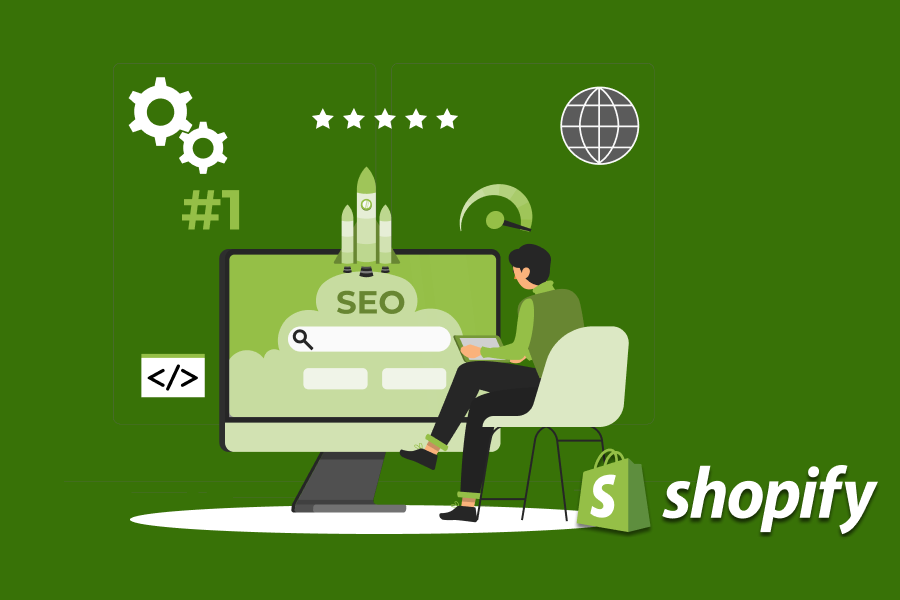Retail industry software solutions are inevitable to build an Omnichannel presence.
But what exactly is Omnichannel retail?
Omnichannel retail is to use several sales channels to offer a seamless shopping experience to the customers. It is a cross-channel business model used by companies to enhance customer satisfaction. The retail industry is a user-centric domain and is thus among a front-runner that employs the Omnichannel business model.
The difference between Omnichannel and Multichannel
When a company imbibes the multi-channel approach, the company, the brand, or the product takes the centre stage. The methods of marketing and sales, be it a physical storefront, online store or social network site gives a platform to the customers to shop from.
On the other hand, in an Omnichannel approach, the customer is the center, and all the multi-channels stated above overlap. This ensures that the customers get an enhanced shopping experience while upholding the value of the brand.
In the multi-channel approach, the business makes the service or the product available to the customer in several ways giving them an option to shop through any of the methods.
In the Omnichannel business, the focus is to offer an uninterrupted experience to the customer through the multi-channel platforms. This is irrespective of the medium that the customer opts to shop from.
Retailing and Omnichannel presence go hand in hand
The new age market asks for retailing through Omnichannel which is the avenue that ensures trending sales. E-commerce is growing and many organizations are tapping into this growing trend.
The retail technology space is coming up with innovative solutions to address various challenges of the retail business. These include logistics, point of sale, inventory management, customer satisfaction, data handling, margin management, brand loyalty, etc. to name a few.
Added to this are the various methods and means through which the customer decides to shop with the retail brand. It could be from an online or physical store or an online marketplace. With various sales channels opening up it creates several operation and management challenges which is a tedious task to streamline.
The retail operation solutions fail to create a unified system to handle Omnichannel retailing and this affects the business at various levels.
With the advent of the digital age, customers need excellent services and experiences. A retail store that is unable to meet this client demand runs out of business soon. It is important to manage the store and operations successfully to effectively automate the business. The retail store needs powerful solutions to run its operations successfully and create a robust Omnichannel presence.
Retail software- What is it?
Retail software works to reduce human errors in invoicing and sales processing. It is capable of applying great discounts on product promotions. Stock orders are generated from the Point of Sale and saves one from writing a quick purchase order.
Retail software solution- Why is it important?
There is constant change going on in the retail industry. This is because of a change in the customers’ shopping behavior and the way they get influenced. Customers are impatient and the reason for this is the immense competition and thus choices in the market.
The below stats are sure to surprise you:
- 85% of customers quit the online shop if they are unable to find the product that they are looking for or if the shop does not have an assistant to guide them.
- 25% of customers wait for a minute to check for the product’s stock availability.
- If there is one or two late or incomplete delivery 75% of customers will not use the retailer again.
The retail software solution is important for brands of every size. The software integrates into the retail business. Retail software solutions are also scalable and meet the requirements of a single shop as well as of a retail chain that has multiple POS or points of sale.
With the retail industry software solutions, retailers can now optimize the business opportunity, witness growth in the project, and maximize their ROI by giving customers a better experience through next generation solutions.
Before we delve into the top retail industry solutions to build an Omnichannel presence let us list the uses of the retail software solutions.
Advantages of retail software solutions
Listed below are the reasons why you should invest in the retail offering and leverage the customized software solutions in the workflow because it does yield a high investment.
Improves customer relation management
With growth in your retail business, you see a need to manage customer relations. This includes maintaining the database of the customer and monitoring the loyalty programs. The retail software solutions help to streamline the customer relationship management operations well.
Enhances employee management
Managing employees is vital. It is a requisite to monitor the sales activities, the amount of business generated, and much more to keep the business running. The comprehensive retail software solution caters to the demands of people management well.
Upscales the inventory and sale management
If your inventory and sales management are good then your retail business will be profitable. This is a thumb rule. The retail software solution simplifies the inventory management challenges which in turn edge your competitors since you now offer upscale operations.
Offers Seamless payments
It is now possible to make seamless payments even if customers want to pay through international currency. This gives customers a seamless transaction experience across varied channels. The retail business is up-geared to accept the international currency and with varied functionalities that are indeed ground-breaking.
The retail software solutions
Now that we understand that the retail industry software solutions are a prerequisite to run any business and build a robust Omni Channel presence let us list out the top solutions for you.
These solutions align the business ensuring that the brand stands at par with the latest trends. It also opens up better avenues to be profitable.
Every business demands a personalized solution so it is important to know what your specific needs are and then choose the cutting edge solution to give an edge to your retail brand.
Catalogue Management
Catalogs offer a list of items that have been categorized meticulously in groups organized by sellers and buyers. The catalog has varied items that range from publications, apparel, electronics, groceries, etc. which is listed in a group that makes it easy to navigate.
The catalog thus provides accurate and comprehensive product information. It is a product listing with data attached to it. This could be the product title, product feature, expiry date, price and date of manufacturing, etc. that are listed for each product in the catalog.
Catalog management offers:
- Catalog data and import and export catalog using the CSV file format.
- The flexibility to create, edit and browse the catalog.
- Creating and editing the catalog entries
- Editing the SKU variants and products
- Editing bundles and packages
- Managing product pricing, categorization, and batch updates
- Determining the access permission, user roles, and data control
- Editing of bulk product
- Customizing the product attributes
- Price management
- Functionality for cross-selling
Inventory Management
Be it a start-up or an established retail company, inventory management software lets the business grow and improve its visibility across the supply chain. This helps to save resources so that the business owners can now focus on the strategic aspects of the business.
Businesses need inventory management solutions to:
- Scan the barcode to track products with software integration
- Correctly maintain inventory for every product through inventory optimization
- Receive updates and alerts on over or under stocking through stock notification
- Generate reports which lets you view the entire history in the form of a list
- For Multi-location management of varied warehouses across the several point of sale and areas
- Automate the time of return and streamline the return of stocks through stock returns handling
- Make a central view to see the purchase order record
Why use Inventory Management?
- Inventory management lets you manage the warehouse stock transfer and orders effortlessly from one single system. The central database accesses all the information that is related to the stock that is kept in the warehouse.
- It integrates with the applications in the back office which includes ERP system and billing software. This processes the data related to stock.
- Creates a name with the SKU generator based on a particular product attribute.
- Tracks the entire activity of sales from adding contacts of the prospects and leads creating invoices and sales orders and managing the sales in the online marketplace.
- With the serial number and batch numbers it tracks the item movement.
- Generates shipping labels and packing slips.
CRM Software for e-commerce
- The e-commerce CRM is a system that is designed specifically to let retailers and e-commerce businesses manage the contact information of the customer. It also manages the purchasing pattern for upselling options and valuable cross-selling.
- CRM offers a degree of marketing, sales, and service automation to streamline the growth of the business. CRM is also used to analyze customer data to improve the experience of the user.
- CRM lets the e-commerce business facilitate the dissemination of information and share it among the business units across varied geographies or outlets like marketing, sales, and support teams.
- It offers a 360-degree view that shows all that is to know about the customer from the first contact point.
- The system allows effective communication tracking for lead acquisition to record past sales.
- It maintains the visit on websites, the purchase history, and other activities for any future reference to keep the sales executives all on the similar page.
- It automatically sends messages and inquiries and customer acknowledgments.
- It supports call scripts and email templates to answer the common customer queries.
- It syncs the sales and the order information with the POS system and the accounting software to eliminate the manual entry of data.
- CRM sends acknowledgement when any sales representative gets a message. It also logs the hours and tracks any communication automatically.
- The reports and analytics are sent to upper management to do a performance report.
Point of Sale Software
Retailers are hassled when it comes to store management. The POS or point of sale is a vital software solution that lets retailers unify offline and online sales. POS placed in the physical store processes the credit card payments or the virtual sales touchpoint to allow payments through desktops and mobile devices.
Customers will get the print in an electronic format. Each POS system uses POS software. This does not need POS hardware.
The types of POS include:
- On-site POS is when the software is locally installed in the server which is a computer that is located in the store premise.
- The cloud-based POS is a SaaS or Software as a Service that is hosted virtually. The data is stored in the internet server then lets you get access to it from any of the computer browsers.
The benefits of POS software include:
- Better efficiency with the software to manage the inventory to ensure the shops’ smooth functioning.
- It helps to oversee all the financial information and the payments for easy tracking.
- POS hardware allows offline selling that makes it easy to carry out sales online as well as offline.
- It accepts a range of contactless payments from EMV chip cards, mobile devices.
- The point of sale solution offers valuable insights and reports on sales to take any actionable insight.
- The POS allows tracking the customer data for better accuracy and eliminates the chances of human error to track the incoming cash and the expenses.
- The POS system provides stock indicators so that the retail store never runs out of sale opportunities.
The features of the POS system includes
- Manage employee productivity and time efficiently and keep track of the tasks and activities.
- Create custom sales to custom line items and set prices on everything.
- Allow product search based on filters like scan barcodes, code to add them to the transactions.
- Order history to see the past orders online as well as offline.
- Offer an option to search by product, customer, or date.
- Calculates the taxes based on store location and sets taxes for a specific order or product.
- Scan the customer order using a barcode scanner.
- Sell gift cards to redeem them in the store or online.
- Integrate with applications and business systems like e-commerce solutions and accounting software to manage the process and tasks within the system.
Omnichannel Retail solution
Without an Omnichannel presence, a retail solution platform is not of worth. Offline customers are now switching to online shopping. Customers today spend time on purchasing through Omni Channel platforms and this is why an Omnichannel presence is the need of the day.
The retail industry software solutions to build an Omnichannel presence focuses on online as well as offline sales. They offer synchronization at various touch points whether it is an offline store, mobile app, or a website.
Price alone does not differentiate a retail store from the crowd. There is customer satisfaction and experience that is at the core to win the heart of the shopper.
Omnichannel retail opens up various avenues to give the new-age customer a different experience. All channels work in sync interacting seamlessly to unleash an enjoyable journey for the client.

 Web and Full Stack
Web and Full Stack CMS and Frameworks
CMS and Frameworks Online Marketing
Online Marketing Cloud Services
Cloud Services ECommerce
ECommerce Mobile
Mobile



